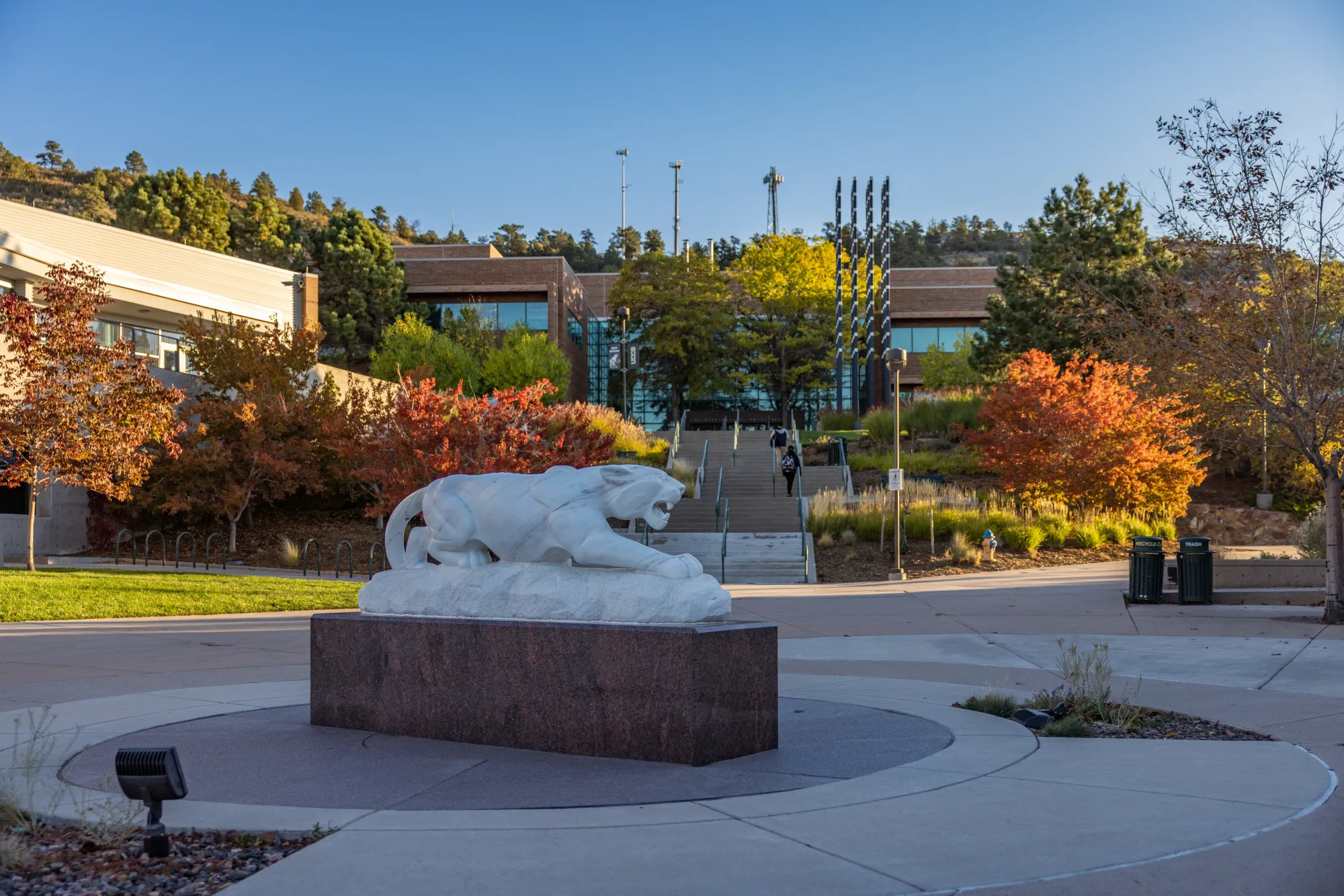
Selected Courses Descriptions Fall 2023
Descriptions of some of the English Department’s Fall 2023 Courses
Christine Robinson Coon, MW 4:45-6pm, Columbine Hall 221
To foster a critical and rhetorical awareness of the sociopolitical nature of language with respect to ideology and identity, students in this course will explore works by scholars in the emerging, interdisciplinary field of animal studies. This will involve examining texts focused on rhetorics about animals and rhetorics of animals. This exploration will cultivate a posthumanist lens students will use to interrogate the human-animal binary in Western culture and its potential effects on both human and nonhuman animals, as well as how certain ideologies are often reinforced in academic and popular culture texts. In the process, students will enhance their repertoire of rhetorical strategies and employ various genres to complicate, challenge or advocate for certain stances or ideologies. (This course fulfills the “Rhetoric & Writing Theory” requirement in the Rhetoric & Writing emphasis.)
Kirsten Bartholomew Ortega, Online Asynchronous
The verdict is in: rap lyrics are definitely poetry. But what does that mean and why does it matter? Whether you’re a certified hip-hop head or someone who just wonders what all the noise is about, this class will help you answer those questions by building your knowledge of hip hop history and your expertise in Hip Hop Poetics: the theory of rap poetry’s forms. You will analyze the cultural impact of rap poems like Melle Mel’s verse in “The Message” or Ice Cube’s verse in “Straight Outta Compton.” You will develop your voice as a hip hop critic to respond to the forms, messages, and aesthetics of rap poetry. For example, you might debate whether Tupac or Biggie was the better rapper or whether Eminem really is a “Rap God” (and why Machine Gun Kelly is not). Join the class to respond (Machine Gun Kelly fans and haters and those who don’t know who he is)! (This course fulfills the LAS Cultural Diversity Area Requirement; it fulfills a “Diversity” requirement in all of the English emphases and can also fulfill either the “genre” or “movement” Designated Elective requirements in the Literature emphasis.)
Kirsten Bartholomew Ortega, TuTh 10:50-12:05, Columbine 221
The explosion of art, music, performance, and literature that make up the movement commonly known as “The Harlem Renaissance” attempted to define black culture in 1920s & 1930s America and to establish it as a unique and powerful cultural force. In this course, we will read works that represent the wide variety of artistic methods that Harlem Renaissance writers employed. You will analyze the texts for insight into the historical and cultural moment they represent. You will critique the effectiveness of different representations, make literary critical arguments about the texts, and consider the effects of reading this literature in the 21st century. You will develop research questions and compile information into a “case book” about a piece of literature that you will use to write an original piece of literary scholarship. (This course meets the Summit Requirement in Compass Curriculum and is a senior literature seminar; it also fulfills the English Department’s “Diversity” requirement and the “movement” designated elective in the Literature emphasis.)
Ann Amicucci, M 1:40-4:20, Columbine 333
This course explores the theoretical and practical study of writing processes across diverse contexts. Students will learn how to teach diverse populations in the K-12 English Language Arts classroom, how to design writing assignments and scaffold students’ learning through an assignment sequence, and how to give feedback on and grade students’ writing. Course projects include investigating solutions to a teaching problem, writing lesson plans, and giving a teaching demonstration. Students who don’t plan to be teachers are welcome; we’ll define “teaching writing” broadly to include workplace and community writing contexts. (This course fulfills a requirement in the Secondary English Education emphasis; it fulfills a “Rhetoric & Writing Theory” requirement in the Rhetoric & Writing emphasis.)
Ann Amicucci, TuTh 12:15-1:30, Centennial 106
What is public intellectualism? Who is a public intellectual, and who gets to decide who becomes one? How do 21st Century public figures use rhetorical strategies to convey arguments about race, disability, and regional culture…and get people to listen? How do dynamics of power, exclusion, and inclusion shape how public figure are heard? In this course, we will question the concept of public intellectualism itself while analyzing the arguments of figures currently in the public eye through the lens of theories of ethos, self-presentation, and public rhetoric. (This course fulfills the English Department’s Diversity requirement; it fulfills the Writing Intensive and Inclusiveness requirements in Compass Curriculum.)
Instructor: Rebecca Laroche, Th 4:45-7:20pm, Osborne B138
Since Shakespeare penned it in the mid-1590s, Romeo and Juliet has been reproduced on stage and screen as a story for all times. Central to its inception and early production, however, were events of the playwright's era: regular plague outbreaks in London. This course will focus on this one play: its origins during the closing of the playhouses because of severe outbreaks, its first performances in the years
after these closures, and its adaptations in recent decades. Students will read other works by Shakespeare and his contemporaries that inform its composition. They will watch and analyze modern productions and adaptations that manipulate or sideline these origins. In written work and class discussion, we will examine how the play harnesses the extremities of loss experienced by a collective culture and focuses those experiences onto the lovers. Together, we will consider how modern productions and adaptations transpose the topicality of the original play onto other, more immediate heartbreaks.